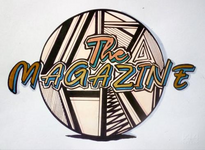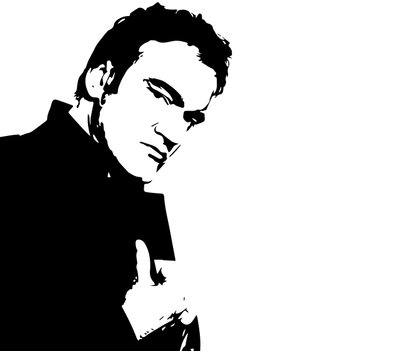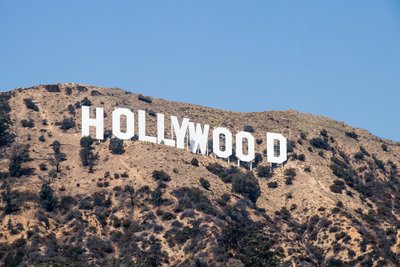 |
 |  |
Once Upon a time in Hollywood |

We usually see the opposite phenomenon.
If you love cinema then you will love a well-made movie.
Exactly the opposite happens here. "Once Upon a Time in Hollywood" is so full of references to a Hollywood that it was, it's so referential and at times self-referential, so meta, that it's impossible to fully appreciate it without being real movie lovers ourselves.
Seeing this movie without loving cinema and getting to know its folds is a bit like going to the movies to see Avengers: Endgame and not having seen the other 22 movies in the Marvel saga. You may like it, you will probably love it but it is impossible that you can appreciate it as who those 22 movies saw and appreciated them one after the other.
Tarantino forgets to be Tarantino for some of the film's traits and returns to being a child. A child who seems to want to document the cinema of those years and above all the context, the air that was breathed around the set, what took place inside the set, the one that animated the actors, that made them despair, that tormented them, that frightened them, that moved them.
Tarantino recounts 1969, what that year in itself he had to tell and what for him and for us could mean today after 50 years.
The director of Pulp Fiction doesn't just remember that world in his own way, it goes much further.
Thanks to its characters we manage to get inside, very much inside that universe, made of bad jokes, missed opportunities, pool parties, broken dreams, adaptations and adaptations.
TV was really the graveyard of elephants, the death of an actor or a director. Not like today where exactly the opposite happens and TV has become a great means of launching and relaunching your career.

Tarantino uses two iconic actors like Brad Pitt and Leonardo Di Caprio to tell us about that iconic world in turn.
It outlines 2 opposite but complementary characters where Cliff Booth serves Rick Dalton as much as Rick Dalton serves Cliff Booth.
Characters over the top, as Quentin's films have accustomed us, with an exaggerated Leonardo Di Caprio, who can not really hold back, offering the best of himself incorporating, 4 years after his last film, all the fragile and self-destructive character of a talented actor who sees his career gradually die before his eyes.
On the other side is Brad Pitt, more and more like Robert Redford, calm, taciturn but no less psychopathic and crazy than Di Caprio.
Together they make an explosive couple even when they talk little or do not speak at all. They are a couple on screen destined to stay for a long time.
The film is a review of legendary characters, places and stories. Bruce Lee and Steve McQueen are just 2 of the movie symbols that was what we see.
The real focus of the whole story is related to the historical events close to the Manson Family and Sharon Tate, actress on the launch pad and wife of Roman Polansky, one of the most popular directors of the time.
Through this storyline Tarantino tries to tell us also the America of those years, that of the Hippieand and the war in Vietnam, that of auteur cinema and the Hollywood Hills.
All these events will soon be intertwined and culminate in a Tarantino finale, which most Tarantinian could not have expected.

"Once Upon a time in Hollywood" has been critically and publicly acclaimed. Nevertheless, it has divided the public much, more than might have been expected.
Reading some comments, speaking to those who saw the film seems to emerge clear the rift between those who loved the film and those who, instead, called it boring and without biting.
If we had to make a statistic we could include in the first group those who call themselves movie lovers, maybe a little nerd and that the history of the Manson Family knew it and well.
In group number 2 those who go to the cinema to attend something special, that the history of cinema know little and that they knew little about the events related to Charles Manson.
Let's get back to the starting point.
This film is a one that is based on the history of the America of those years.
On the other hand, you risk not appreciating it to the full and therefore feeling poor enough when leaving the cinema.
This is the rift that "Once Upon a time" gives us. A huge tribute of Tarantino to the seventh art, made in his own way, building the usual wonderful toy fruit of a genial and even a little boyish mind, which tries for the umpteenth time to make us dream between flamethrowers, knifes, caravans, hippies, hippies and dangerous pooches.
Far away, far from the Kill Bill or Reservoir dog style, but always close to the maximum you might expect entering a cinema room in 2019.

Solitamente assistiamo al fenomeno contrario.
Se ami il cinema allora amerai un film ben fatto.
Qui avviene esattamente l'opposto. "Once Upon a Time in Hollywood" è talmente pieno di riferimenti ad una Hollywood che fu, è talmente referenziale ed a tratti autoreferenziale, cosi meta, che è impossibile apprezzarlo appieno senza essere noi stessi veri amanti del cinema.
Vedere questo film senza amare il cinema e conoscerne le pieghe è un po come andare al cinema a vedere Avengers: Endgame e non aver visto gli altri 22 film della saga Marvel. Vi piacerà forse, lo amerete probabilmente ma è impossibile che riusciate ad apprezzarlo come chi quei 22 film li ha visti e apprezzati uno dopo l'altro.

Tarantino dimentica di essere Tarantino per alcuni tratti del film e ritorna ad essere bambino. Un bambino che sembra voler documentare il cinema di quegli anni e soprattutto il contesto, l'aria che si respirava intorno al set, quello che avveniva dentro il set, quello che animava gli attori, che li faceva disperare, che li tormentava, che li impauriva, che li muoveva.
Tarantino racconta il 1969, quello che quell'anno in se aveva da raccontare e quello che per lui e per noi potrebbe significare oggi a distanza di 50 anni.
Il regista di Pulp Fiction non si limita a ricordare a modo suo quel mondo ma va molto oltre.
Grazie ai suoi personaggi riusciamo ad entrare dentro, molto dentro quell'universo, fatto di battute sbagliate, di opportunità mancate, di feste in piscina, di sogni infranti, di adattamenti e riadattamenti.
La tv era davvero il cimitero degli elefanti, la morte di un attore o di un regista. Non come oggi dove accade esattamente l'opposto e la tv è divenuta un grande mezzo per lanciarsi e rilanciare la propria carriera.
Tarantino si serve di 2 attori iconici come Brad Pitt e Leonardo Di Caprio per raccontarci quel mondo cosi iconico a sua volta.
Delinea 2 caratteri opposti ma complementari dove a Cliff Booth serve Rick Dalton tanto quanto a Rick Dalton serve Cliff Booth.
Personaggi sopra le righe, come daltronde i film di Quentin ci hanno abituato, con un Leonardo Di Caprio esagerato, che non riesce davvero a trattenersi, offrendo il meglio di se incorporando, a 4 anni dal suo ultimo film, tutto il carattere fragile e autodistruttivo di un attore di talento che vede morire a poco a poco davanti ai suoi occhi la propria carriera.
Dall'altra parte c'è Brad Pitt, sempre più simile a Robert Redford, pacato, taciturno ma non meno psicopatico e folle di Di Caprio.
Insieme fanno una coppia esplosiva anche quando parlano poco o non parlano affatto. Sono una coppia sullo schermo destinata a restare a lungo.
Il film è una rassegna di personaggi, luoghi e storie leggendarie. Bruce Lee e Steve McQueen sono solo 2 dei simboli del cinema che fu che vediamo.

Il vero fulcro di tutta la storia è legato invece alle vicende storiche vicine alla Manson Family e Sharon Tate, attrice in rampa di lancio e moglie di Roman Polansky, uno dei registi più in voga del tempo.
Attraverso questa storyline Tarantino prova a raccontarci anche l'America di quegli anni, quella degli Hippie e della guerra in Vietnam, quella del cinema d'autore e delle colline di Hollywood.
Finiranno ben presto per intrecciarsi tutte queste vicende per culminare poi in un finale alla Tarantino, che più Tarantiniano non ci si poteva attendere.
"Once Upon a time in Hollywood" ha riscosso successo di critica e pubblico. Cio nonostante ha diviso molto, più di quello che ci si potesse attendere, il pubblico.
Leggendo alcuni commenti, parlando con chi ha visto il film sembra emergere netta la spaccatura fra chi il film lo ha amato e chi, invece, lo ha definito noioso e senza mordente.
Dovendo fare una statistica potremmo inserire nel primo gruppo quelli che si definiscono amanti del cinema, magari un po nerd e che la storia della Manson Family la conoscevano e bene.
Nel gruppo numero 2 quelli che invece al cinema vanno per assistere a qualcosa di speciale, che la storia del cinema la conoscono poco e che poco conoscevano delle vicende legate a Charles Manson.
Torniamo al punto di partenza.
Questo film lo apprezzi se parti da basi solide sulla cinematografia e la storia dell'America di quegli anni.
Viceversa, rischi di non apprezzarlo fino in fondo e dunque di sentirsi abbastanza poveri all'uscita dal cinema.
E' questa la spaccatura che ci consegna "Once Upon a time". Un tributo enorme di Tarantino alla settima arte, fatto alla sua maniera, costruendo il solito meraviglioso giocattolo frutto di una mente geniale e anche un pò fanciullesca, che prova per l'ennesima volta a farci sognare tra lanciafiamme, coltellacci, roulotte, hippie e cagnoloni pericolosi.
Lontani, molto lontani dallo stile Kill Bill o Le Iene, ma sempre vicini al massimo che ci si potrebbe aspettare entrando nella sala di un cinema nel 2019.

Usualmente vemos el fenómeno opuesto.
Si amas el cine, te encantará una película bien hecha.
Esto es exactamente lo contrario. "Once Upon a Time in Hollywood" está tan llena de referencias a un Hollywood que fue, es tan referencial y a veces autorreferencial, tan meta, que es imposible apreciarlo completamente sin ser verdaderos amantes del cine.
Ver esta película sin amar el cine y conocer sus pliegues es como ir al cine para ver Avengers: Endgame y no haber visto las otras 22 películas de la saga Marvel. Tal vez te encantará, probablemente te encantará, pero es imposible que puedas apreciarlo como aquellos que vieron esas 22 películas y las apreciaron una tras otra.
Tarantino se olvida de ser Tarantino para algunas partes de la película y vuelve a ser un niño. Un niño que parece querer documentar el cine de esos años y, sobre todo, el contexto, el aire que se respiraba alrededor del set, lo que sucedió dentro del set, el que animó a los actores, que los hizo desesperar, que los atormentó, que los asustó, lo que los movió.
Tarantino relata el 1969, lo que este año tenía que contar y lo que para él y para nosotros podría significar hoy después de 50 años.

El director de Pulp Fiction no se limita a recordar ese mundo a su manera, sino que va mucho más allá.
Gracias a sus personajes logramos entrar mucho adentro de ese universo, compuesto de bromas equivocadas, oportunidades perdidas, fiestas en la piscina, sueños rotos, adaptaciones y reajustes.
La televisión era realmente el cementerio de los elefantes, la muerte de un actor o un director. No es como hoy, donde sucede exactamente lo contrario y la televisión se ha convertido en una excelente manera de lanzar y relanzar la carrera.
Tarantino utiliza 2 actores icónicos como Brad Pitt y Leonardo Di Caprio para contarnos sobre ese mundo icónico a su vez.
Esquema 2 personajes opuestos pero complementarios donde a Cliff Booth sirve Rick Dalton tanto como a Rick Dalton sirve Cliff Booth.
Personajes exagerados, como nos han acostumbrado las películas de Quentin, con un exagerado Leonardo Di Caprio, que realmente no puede contenerse, ofreciendo lo mejor de sí mismo al incorporar todo su carácter frágil y autodestructivo cuatro años después de su última película, de un actor talentoso que ve su carrera morir lentamente ante sus ojos.
Por otro lado está Brad Pitt, cada vez más similar a Robert Redford, tranquilo, taciturno pero no menos psicópata y loco que Di Caprio.
Juntos forman una pareja explosiva incluso cuando hablan poco o no hablan en absoluto. Son una pareja en la pantalla destinada a permanecer mucho tiempo.
La película es una reseña de personajes legendarios, lugares e historias. Bruce Lee y Steve McQueen son solo 2 de los símbolos del cine que vemos.
El verdadero punto de apoyo de toda la historia está vinculado a los acontecimientos históricos cercanos a la familia Manson y a Sharon Tate, actriz en lanzamiento y esposa de Roman Polansky, uno de los directores más populares de la época.
A través de esta historia, Tarantino también trata de contarnos sobre la América de esos años, la de los Hippies y la guerra en Vietnam, la del cine de autor y las colinas de Hollywood.
Pronto todos estos acontecimientos terminarán entretejidos para culminar en un final al estilo Tarantino, que no podría haber sido más Tarantino.
"Once Upon a Time in Hollywood" ha tenido un éxito crítico y público. No obstante, ha dividido al público mucho más de lo que podría esperarse.

Al leer algunos comentarios, hablar con los que vieron la película, la brecha entre los que amaron la película y los que la llamaron aburrida y sin mordida parece surgir claramente.
Al tener que hacer una estadística, podríamos incluir en el primer grupo a aquellos que se definen a sí mismos como amantes del cine, tal vez un poco nerd y que conocen bien la historia de la familia Manson.
En el grupo número 2, aquellos que van al cine a ver algo especial, que saben poco al respecto de la historia del cine y que poco sabían sobre los eventos relacionados con Charles Manson.
Volvamos al punto de partida.
Apreciará esta película si parte de bases sólidas en cinematografía y la historia de América en esos años.
Por el contrario, corre el riesgo de no apreciarla al máximo y, por lo tanto, sentirte lo suficientemente pobre cuando abandonas el cine.
Esta es la división que nos da "Érase una vez". Un enorme homenaje a Tarantino al séptimo arte, hecho a su manera, construyendo el maravilloso juguete habitual, fruto de una mente brillante e incluso un poco infantil, que intenta una vez más hacernos soñar con lanzallamas, cuchillos, caravanas, hippies y grandes perros peligrosos.
Lejos, muy lejos del estilo de Kill Bill o de Reservoir Dogs, pero siempre cerca del máximo que se podría esperar al entrar a una sala de cine en 2019.

Normalerweise sehen wir das gegenteilige Phänomen.
Wenn Sie Kino lieben, werden Sie einen gut gemachten Film lieben.
Das ist genau das Gegenteil. "Es war einmal in Hollywood" ist so voll von Hinweisen auf ein Hollywood, dass es so referenziell und manchmal selbstreferenziell ist, dass es unmöglich ist, es vollständig zu würdigen, ohne selbst wahre Kinoliebhaber zu sein.
Diesen Film zu sehen, ohne das Kino zu lieben und seine Falten zu kennen, ist ein bisschen wie ins Kino zu gehen, um Avengers: Endgame zu sehen und die anderen 22 Filme der Marvel-Saga nicht gesehen zu haben. Sie werden es vielleicht lieben, Sie werden es wahrscheinlich lieben, aber es ist unmöglich, dass Sie es schätzen können wie diejenigen, die diese 22 Filme gesehen und nacheinander geschätzt haben.
Tarantino vergisst für einige Teile des Films, Tarantino zu sein und kehrt zu seiner Kindheit zurück. Ein Kind, das das Kino jener Jahre und vor allem den Kontext dokumentieren will, die Luft, die um das Set herum eingeatmet wurde, was innerhalb des Sets passierte, die die Schauspieler animierte, die sie verzweifeln ließ, die sie quälte, die sie quälte erschrocken, was sie bewegte.
Tarantino erzählt das Jahr 1969, das er in diesem Jahr erzählen musste und was es heute nach 50 Jahren für ihn und für uns bedeuten könnte.

Der Regisseur von Pulp Fiction beschränkt sich nicht darauf, sich auf seine Weise an diese Welt zu erinnern, sondern geht noch viel weiter.
Dank seiner Charaktere schaffen wir es, in dieses Universum einzudringen, das aus falschen Witzen, verpassten Gelegenheiten, Poolpartys, zerbrochenen Träumen, Anpassungen und Neuanpassungen besteht.
Fernsehen war wirklich der Elefantenfriedhof, der Tod eines Schauspielers oder eines Regisseurs. Nicht wie heute, wo genau das Gegenteil passiert und Fernsehen eine großartige Möglichkeit ist, seine Karriere zu starten und neu zu starten.
Tarantino verwendet zwei berühmte Schauspieler wie Brad Pitt und Leonardo Di Caprio, um uns der Reihe nach von dieser berühmten Welt zu erzählen.
Skizzieren Sie 2 gegenüberliegende, aber komplementäre Charaktere, in denen Cliff Booth Rick Dalton und Rick Dalton Cliff Booth dient.
Charaktere, die übertrieben sind, wie Quentins Filme es gewohnt sind, mit einem übertriebenen Leonardo Di Caprio, der sich nicht wirklich zurückhalten kann und das Beste aus sich herausholt, indem er vier Jahre nach seinem letzten Film all seinen zerbrechlichen und selbstzerstörerischen Charakter in sich aufnimmt. eines talentierten Schauspielers, der seine Karriere langsam vor seinen Augen sterben sieht.
Auf der anderen Seite steht Brad Pitt, der Robert Redford immer ähnlicher wird, ruhig, schweigsam, aber nicht weniger psychopathisch und verrückt als Di Caprio.
Zusammen bilden sie ein explosives Paar, auch wenn sie wenig oder gar nicht sprechen. Sie sind ein paar auf dem Bildschirm, die dazu bestimmt sind, lange zu bleiben.
Der Film ist eine Rezension legendärer Charaktere, Orte und Geschichten. Bruce Lee und Steve McQueen sind nur zwei der Symbole des Kinos, die wir gesehen haben.
Der eigentliche Dreh- und Angelpunkt der ganzen Geschichte sind vielmehr die historischen Ereignisse in der Nähe der Familie Manson und von Sharon Tate, Schauspielerin auf der Startrampe und Ehefrau von Roman Polansky, einem der beliebtesten Regisseure der Zeit.
Mit dieser Geschichte versucht Tarantino uns auch über das Amerika jener Jahre, das der Hippies und des Vietnamkrieges, das des Autorenfilms und die Hollywood Hills zu berichten.
Sie werden bald mit all diesen Ereignissen verwoben sein und dann in einem Tarantino-Finale gipfeln, das von Tarantino nicht mehr erwartet werden konnte.
"Es war einmal in Hollywood" hat kritischen und öffentlichen Erfolg gehabt. Trotzdem hat es die Öffentlichkeit viel stärker gespalten, als es zu erwarten war.

Einige Kommentare zu lesen, mit denen zu sprechen, die den Film gesehen haben, die Kluft zwischen denen, die den Film liebten und denen, die ihn stattdessen langweilig und ohne Biss nannten, scheint deutlich zu werden.
Wenn wir eine Statistik machen müssten, könnten wir diejenigen in die erste Gruppe aufnehmen, die sich als Kinoliebhaber bezeichnen, vielleicht ein kleiner Nerd, und die die Geschichte der Manson-Familie gut kannten.
In Gruppe Nr. 2 diejenigen, die ins Kino gehen, um etwas Besonderes zu sehen, die wenig über die Geschichte des Kinos wissen und wenig über die Ereignisse im Zusammenhang mit Charles Manson wissen.
Kehren wir zum Ausgangspunkt zurück.
Sie schätzen diesen Film, wenn Sie von soliden Grundlagen der Kinematographie und der Geschichte Amerikas in diesen Jahren ausgehen.
Umgekehrt riskieren Sie, dass Sie es nicht in vollem Umfang zu schätzen wissen und sich deshalb schlecht genug fühlen, wenn Sie das Kino verlassen.
Dies ist die Trennung, die uns "Es war einmal" gibt. Eine enorme Hommage an Tarantino an die siebte Kunst, die er auf seine eigene Weise geschaffen hat und die das übliche wundervolle Spielzeug, die Frucht eines brillanten Verstandes und sogar eines kleinen Jungens, der erneut versucht, uns von Flammenwerfern, Messern, Wohnwagen, Hippies und großen Hunden träumen zu lassen gefährlich.
Weit weg, weit weg vom Kill Bill- oder Le Iene-Stil, aber immer in der Nähe des Maximums, das beim Betreten eines Kinosaals im Jahr 2019 zu erwarten ist.
edited by @serialfiller
Movie URL: https://www.themoviedb.org/movie/466272-once-upon-a-time-in-hollywood?language=it-IT
Rate: AAA

Follow our projects: @steempossible, @themagazine, @storychain and follow the work of our founders @ilnegro and @serialfiller
Downvoting a post can decrease pending rewards and make it less visible. Common reasons:
Submit